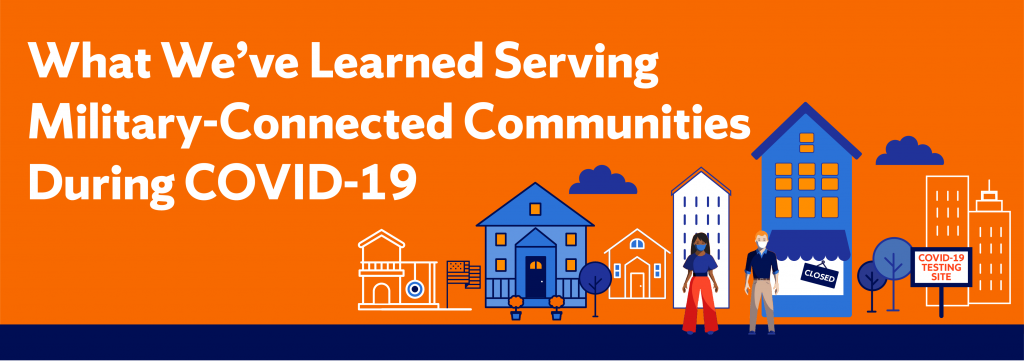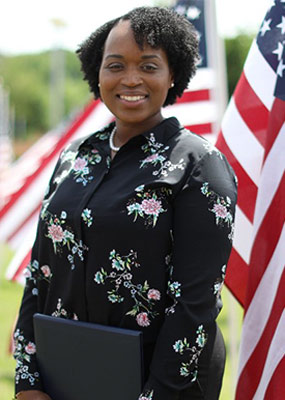Community News

Needs Have Changed
Over the past five years, AmericaServes has seen a consistent trend in top service requests of: Housing & Shelter, Benefits Navigation, and Employment across community networks. COVID-19 and the immediate impacts caused a shift in this trend, with requests addressing basic human needs like Food Assistance and Income Support joining the top tier of critical service needs. | This reflects the reality many military-connected clients are facing, and the amazing way our providers have shifted to meet those needs. For example, the Brentwood VFW, a provider in our PAServes-Pittsburgh network, has seen a spike in referrals since the onset of COVID-19, receiving 512 referrals, of which 347 were for food assistance alone, since March 2020.
Not Everyone is Impacted Equally
COVID-19 has created long lasting impacts on veterans and their families health and the economy, but not all people in the military population have been impacted in the same way. In partnership with the national publication, Military Times, the IVMF launched a national poll to understand the effects of COVID-19 on the veteran and military-connected community and assess their evolving needs and concerns. Our national polling indicated that women veterans are much more likely than male veterans to experience pressing needs related to social service and economic supports. For example, over half of women veterans indicated inadequate mental health support, nearly twice the rate of male veterans. Additionally, Department of Labor data suggests women veterans have been harder hit by the economic downturn. The unemployment rate for women veterans in July was over 3 percentage points higher than male veterans. Women veterans are not the only sub-population int he veteran community disproportionately impacted by the COVID-19 crisis. Veterans of color reported higher percentages of social and economic need in every single resource category compared to white veterans. Veterans of color were more likely to report needing support in areas like food and nutrition, housing, benefits and claims assistance and mental health. Additionally, the Black veteran unemployment rate is 9.3%, nearly two points higher than the white veteran unemployment rate of 7.4%. Read more about understanding the economic impacts of COVID-19 on veterans and military families.
Client Volume Declined
Overall client volume across our community networks has decreased by approximately 21% compared to this time last year. We have heard of similar decreases from service providers across the country: for most, client volume decreased in the immediate months following the onset of COVID-19. While not as many clients were seeking services, those that did seek services requested, on average, three or more services per client. While there are several factors why client volume initially declined, one community used a targeted approach to reach out to previous clients identified as potentially more vulnerable during the pandemic. This best practice identified crucial needs among those in the community.
Communities are Resilient
Providers and community members have created innovative opportunities to reach vulnerable populations in high need areas. These strategies have been instrumental in continuing to facilitate quality care and meet the shifting demand of the military connected community during COVID-19. When stay at home orders began causing many office buildings to close, many providers began web-based or remote services and will continue to see clients this way in the future. Others were able to modify program eligibility criteria or add additional services, relaxing restrictions which allowed more veterans and military families to receive care. ServingTogether, serving the national capital region, connected a local volunteer organization to a county food taskforce to help get food delivered directly to their veteran clients’ doors. The NYC Veterans Alliance established the Veterans Mutual Aid program, which was launched to help deliver food and other essential goods to homebound veterans and has expanded to assist with other immediate needs and resources. Similar initiatives have launched in response to COVID-19 as providers continually adapt to changing conditions.


